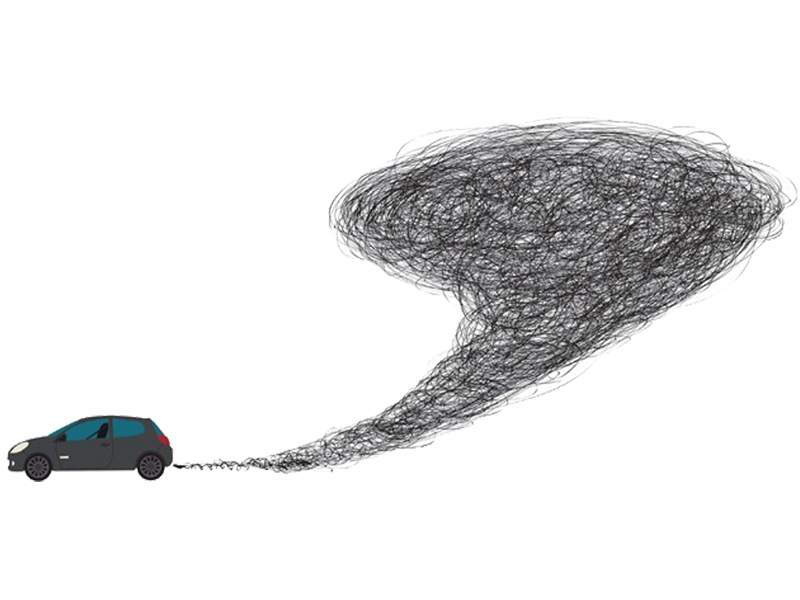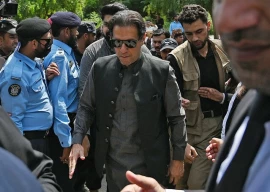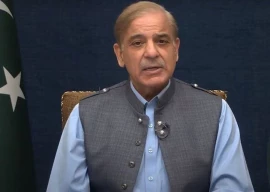
According to documents available with The Express Tribune, a total of 168,513 vehicles were registered in the federal capital during the last five years, making for a 100 percent increase in the period between 2009 and 2013.
An official at the excise and taxation department termed this an ‘alarming figure’, saying that the sharp rise could be attributed to multiple reasons, with the lack of reliable public transport being paramount among them.
“Obviously when citizens are deprived of a public transport system, then they have no option but to purchase their own vehicles,” said Islamabad Deputy Commissioner Mujahid Sherdil.
Shaukat Aziz, during his term as finance minister, had made purchase financing of cars a relative breeze. In turn, this decision is also seen as a reason for the spike. In collaboration with banks, the scheme incentivised car ownership for individuals, creating a bubble in the auto sector. Another senior excise official was of the view that the previous PPP regime — just before vacating the centre this year — had introduced a car amnesty, resulting in an increased number of privately-purchased vehicles.
However, former deputy commissioner Amir Ali Ahmed, now serving as the Capital Development Authority (CDA) administration member, has a different take. While admitting that the lack of a public transport facility was partly responsible, he believes that real cause is the rapidly increasing population of the federal capital. According to the 1998 census, the population of the city was only 800,000, but has now more than doubled to around 1.8 million.
Another inevitable setback due to increased number of automobiles is the ensuing environmental damage.
Asif Shuja Khan, director general (DG) of the Pakistan Environment Protection Agency (Pak-EPA) told The Express Tribune that the existing level of particulate matter in Islamabad is 72 micrograms per cubic metre (UG/M3), almost twice the permissible limit of 40/M3. “This is a very dangerous amount of particulate matter,” he stressed. However, he added that the introduction of hybrid vehicles by new companies is a redemptive measure, as these are more environment-friendly.
Khan claimed that his department has placed seven air quality monitoring systems in the city to check the composition of gases in air. He also emphasised the climate change impact of the increased number of vehicles. When asked to propose a suggestion to combat the imminent environmental threat, he instantly replied, “public transport”.
“The way population growth in the city is escalating, it is better if we plan now for a public transport system.”
Jawed Ali Khan, a former director general (DG) of the climate change ministry, confirmed that exceedingly high levels of pollution have been recorded since the purchase-financing mechanism was made accessible.
Moreover, carbon emissions from vehicles contribute significantly to global warming, he added.
Another purported consequence of this sudden boom could be an increase in road accidents, suggested Islamabad Traffic Police Spokesman Naeem Abbasi. Data collected by the traffic police indicates that 120 people were killed and 175 injured in road accidents from January 1 to December 20, 2013. Abbasi further claimed that if public transport was provided in the capital, the number of road accidents could be reduced in half.
Adding up
New cars registered
| 2009 | 21,806 |
| 2010 | 28,612 |
| 2011 | 30,152 |
| 2012 | 43,121 |
| 2013 | 44,822 |
| Total | 168,513 |
Published in The Express Tribune, December 30th, 2013.



1725030039-0/Untitled-design-(2)1725030039-0-165x106.webp)
1725366721-0/kyle-(1)1725366721-0-165x106.webp)



1732696613-0/BeFunk_§_]__-(59)1732696613-0.jpg)
1732622842-0/Express-Tribune-(9)1732622842-0-270x192.webp)







COMMENTS
Comments are moderated and generally will be posted if they are on-topic and not abusive.
For more information, please see our Comments FAQ